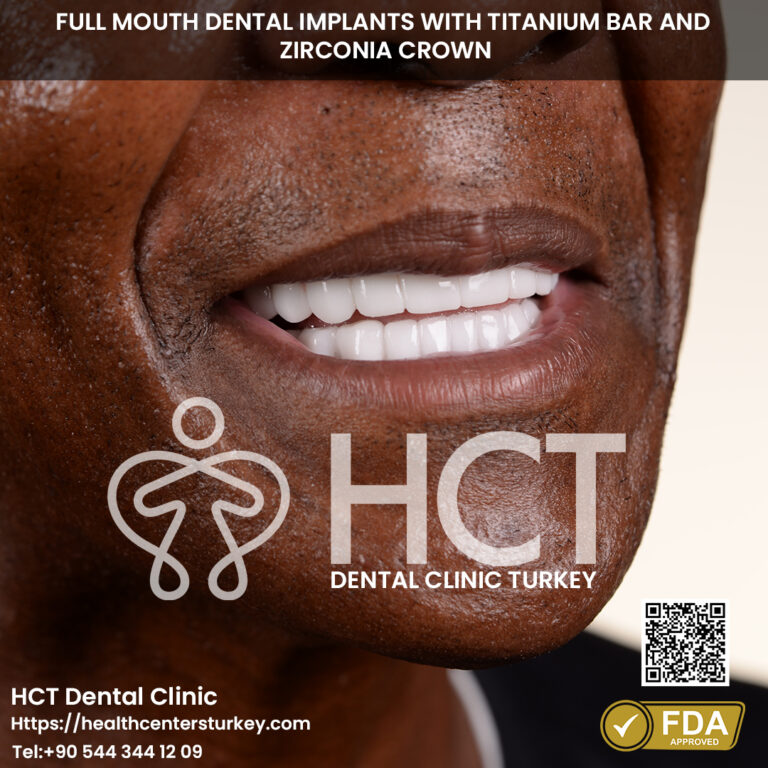Remarkable Dental Clinics Accessible to International Patients in Turkey
Remarkable Dental Clinics Accessible to International Patients in Turkey
Blog Article
Most Recommended Dental Treatments for Overseas Patients in Turkey

Dental implants have turn into a focal point in fashionable dentistry, offering a dependable answer for these dealing with tooth loss. Among the a number of benefits they offer, one vital aspect price considering is their impression on adjacent teeth. Understanding how dental implants affect surrounding teeth aids in making knowledgeable decisions about oral health.
When a tooth is misplaced, neighboring teeth can simply shift toward the space left behind. This motion can result in misalignment, which compromises the overall chunk and function of the mouth. Dental implants mimic natural tooth roots, thereby maintaining the place of adjacent teeth.
The Place for Quality Dental Care at Value Rates
The stability offered by an implant is essential, as it helps in preserving not just the bodily alignment but also the structural integrity of the jawbone. When a tooth is missing, the underlying bone can start to deteriorate due to lack of stimulation. An implant exerts strain on the bone throughout chewing, similar to a natural tooth, which promotes bone health.
In some instances, a bridge or partial denture may be thought-about as an alternative alternative to implants. While these options might restore some performance, they can place further stress on neighboring teeth. Bridges usually require filing down the encircling teeth to accommodate the anchors, thereby affecting their health over time. Dental implants, then again, do not alter current teeth, making them a more conservative selection.
Health Tourism: Take Advantage of Affordable Care in Turkey
Hygiene becomes one other important factor when contemplating adjacent teeth within the context of implants. With dental implants, the person can maintain a daily hygiene routine much like natural teeth. Flossing and brushing around the implant are simple, guaranteeing that the gum tissue remains healthy and minimizing the danger of gum disease that might adversely have an effect on adjacent teeth.
Moreover, the materials used in dental implants are biocompatible. This means they're designed to combine nicely with the body, decreasing the probabilities of an opposed response. This attribute not only makes the implant safe but in addition protects close by teeth from potential points that might come up because of contamination or infection.
In phrases of aesthetics, dental implants supply a natural feel and appear, carefully resembling original teeth. Adjacent teeth benefit from this aesthetic attraction as properly. When an implant is positioned, the encircling gum tissue may be formed to imitate natural contours, thereby enhancing the general appearance of the smile. This aesthetic issue can encourage people to invest in their oral care routines, benefiting each the implants and adjacent teeth in the long term.
State-of-the-Art Dental Procedures for Every Patient
Another concern is the potential for gum disease, which might have an effect on the health of adjacent teeth. Gum disease can occur when plaque builds up around teeth and implants. Regular dental visits and applicable oral hygiene can mitigate this concern. The presence of implants also can serve as a motivator for better dental hygiene practices, as individuals become more conscious of maintaining their overall mouth health.
Studies have shown that dental implants can contribute to a significant enchancment in quality of life. Patients usually expertise elevated confidence and are much less hesitant to smile or interact in social interactions. A healthy and well-maintained smile indirectly promotes better care for adjacent teeth, as individuals tend to turn out to be extra conscious of their overall oral hygiene.
One often-overlooked aspect is the psychological impact of dental implants on patients. Knowing that implants offer long-term options can ease the anxiousness associated with reference tooth loss. With fewer worries about future tooth shifts, patients usually tend to make investments effort and time into caring for their teeth, which includes adjacent teeth.
In conclusion, dental implants serve as more than just a solution for missing teeth; they play a pivotal function in maintaining the health and integrity of adjacent teeth. From preventing misalignment to promoting gum health and enhancing aesthetics, the benefits are manifold. By opting for implants, individuals can not solely restore performance but in addition foster a healthier oral setting for surrounding teeth. The psychological and aesthetic benefits further contribute to an total enhanced quality of life.
Complete Oral Care for A Radiant Smile
In the long term, understanding how dental implants affect adjacent teeth can guide people in making empowered choices concerning their dental health. The integration of these implants into the mouth acts as a stabilizing drive, safeguarding both the bodily alignment and functionality of neighboring teeth, whereas promoting a long-lasting, wholesome smile.
- Dental implants typically don't exert pressure on adjacent teeth, sustaining their integrity and reducing the danger of shifting or misalignment.
- The placement of an implant often encourages higher oral hygiene habits, positively influencing the health of adjacent teeth through improved cleansing practices.
Enhance Your Well-Being with Quality Dental Care
- In some cases, dental implants can stimulate the encompassing bone, which helps preserve the natural teeth's position and total dental structure.

- The gap left by missing teeth can result in bone loss; dental implants can prevent this, thereby protecting adjacent teeth from potential complications.
- Discover Cost-effective Oral Health Services in Turkey
Trustworthy Braces and Aligners provided in Antalya
- By restoring the function of a missing tooth, implants assist distribute chew forces evenly, decreasing wear and stress on neighboring teeth.

- Properly positioned dental implants can act as a assist structure, stopping undesirable motion of adjacent teeth ensuing from tooth loss.
- The presence of an implant could improve the aesthetic appearance of surrounding teeth by filling in gaps and supporting facial structure.
Custom Dental Solutions for Patients Seeking Care in Turkey
- Dental implants eliminate the need for adjacent teeth alteration, in contrast to bridges, which require reshaping the nearby teeth for support.
- Implants also reduce the risk of gum disease compared to other tooth replacement choices, not directly benefiting adjacent teeth by selling total oral health.
Your Guide to Dental Procedures in Turkey.
- Long-term success of dental implants is linked to the health of surrounding teeth, emphasizing the significance of normal dental check-ups and maintenance.
How do dental implants affect adjacent teeth?
Your Path to a Perfect Smile with Implants and Veneers
What are dental implants and how do they work with adjacent teeth?undefinedDental implants are artificial tooth roots placed into the jawbone to support replacement teeth. They don’t affect adjacent teeth directly, as they're impartial constructions. Instead, they might help keep the integrity of surrounding teeth by preventing bone loss.
Can dental implants cause harm to adjacent teeth?undefinedIf positioned appropriately, dental implants mustn't harm adjacent teeth. However, improper placement can lead to issues like misalignment or pressure, emphasizing the significance of choosing an experienced dental professional.
Will dental implants promote bone development round adjacent teeth?undefinedYes, dental implants help stimulate the jawbone, which can encourage bone development. This can profit adjacent teeth by maintaining bone density and stability in the space.
Elevate Your Teeth using Innovative Dental Practices in Turkey
Should I fear about gum disease affecting adjacent teeth after getting an implant?undefinedGood oral hygiene is essential after getting an implant. Gum disease can still affect adjacent teeth, however a correctly maintained implant does not increase that risk. Regular dental visits may help monitor and keep gum health.
What happens to adjacent teeth if I lose a dental implant?undefinedIf a dental implant fails or is misplaced, adjacent teeth could shift because of modifications in bite alignment and assist structure. This might lead to misalignment or extra tooth loss if not addressed.
Are there any special care requirements for adjacent teeth after getting implants?undefinedMaintaining good oral Look At This hygiene practices, together with regular brushing, flossing, and dental check-ups, is essential for each dental implants and adjacent teeth to stop decay and gum disease.
Value-Driven Oral Health Bridges for Patients
Do dental implants help assist adjacent teeth when chewing?undefinedAbsolutely. Implants can improve overall chunk perform, which can alleviate stress on adjacent teeth throughout chewing. This can lead to higher distribution of forces, promoting oral health.
How can I prevent complications with adjacent teeth and implants?undefinedConsistent dental care, together with professional cleanings and examinations, common brushing and flossing, and following your dentist’s aftercare instructions, are key to stopping problems.
Can adjacent teeth move if I really have a dental implant?undefinedAdjacent teeth may transfer if they aren't well-supported, especially after tooth loss. A dental implant helps maintain the structure, decreasing the risk of shifting teeth. Report this page